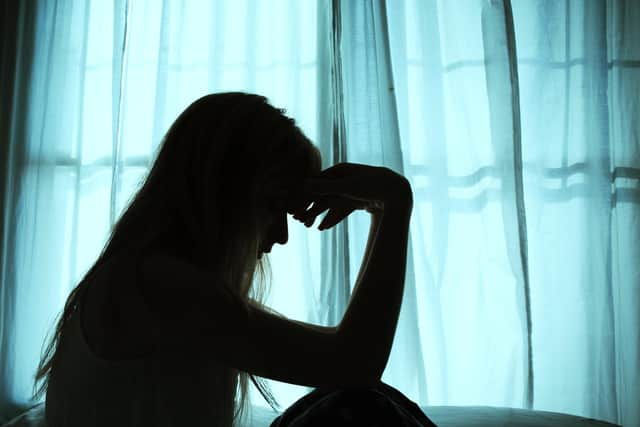Scotland's rape crisis centres in turmoil as gender ideology threatens female-only service – Susan Dalgety
The legal definition of rape is clear. Under the Sexual Offences (Scotland) Act of 2009, rape is defined as “penetration of the vagina, anus or mouth by the penis without consent”. Rape is a violent crime where a penis, the male organ that carries the urethra, through which urine and semen are discharged, is the weapon.
Men as well as women can be victims of rape. Children of both sexes can be victims of rape. The dead can be raped. But only people with a penis can be the perpetrators of the crime most women fear the most.
Advertisement
Hide AdAdvertisement
Hide AdThat is why second-wave feminists – women now in their late 60s and older – established rape crisis centres in Scotland more than 40 years ago. The first was in Glasgow in 1976, the second in Edinburgh two years later. As women’s voices got stronger, and the power relationship between men and women started to shift, women gathered together to support each other during one the most terrible periods of any woman’s life – the aftermath of a rape.


In those early days, the centres were staffed by volunteers and funded by donations. Today, there are 17 rape crisis centres across Scotland, from Shetland to Dumfries and Galloway. In 2020-21, Rape Crisis Scotland – the movement’s national body – received more than £5 million for its sexual violence support work, much of it from the Scottish Government.
Funders pressing for ‘trans-inclusive’ services
But as the movement evolved from a voluntary service to a professional one, the principle which underpinned it remained constant. Survivors of rape and sexual assault should have access to female-only support services. Women looking after each other in a way only women can understand. Until recently that is, when gender identity ideology, which dismisses the reality of biological sex, began to assert itself in that most sacred of female-only spaces – rape crisis centres.
A report published this week shows that the sector is now in turmoil across the UK. Women’s Services: A Sector Silenced, launched by human rights charity Sex Matters, reveals that groups are mired in confusion as they grapple with the conflicts arising out of a move towards “trans-inclusive” services, often forced on them by funders. It also points to growing evidence that women are reluctant to seek help because they do not want to risk being counselled by a man.
The lead author of the report, social-science researcher Matilda Gosling, says that those sector leaders who believe in the necessity of single-sex spaces face an intolerable choice between not offering the services that women need or losing out on funding. “These are brave, principled leaders who’ve been put in an impossible situation – and either way, vulnerable women lose,” she says.
Nowhere is the confusion and upset more obvious than in Edinburgh. As the report was published, an employment tribunal involving a former member of staff at the Edinburgh Rape Crisis Centre (ERCC) began. Roz Adams, a support counsellor, is claiming constructive dismissal after she was subjected to a nine-month disciplinary process where she was accused of being “transphobic”. She had suggested that the centre tell a woman survivor that one of its advice workers was “a woman at birth that now identifies as non-binary”.
Challenging rape victims’ ‘prejudices’
This is not the first time the Edinburgh centre has hit the headlines in recent years. It is run by Mridul Wadhwa, who was born male. In August 2021, Wadhwa told the Guilty Feminist podcast that “bigoted” rape victims would be challenged by the centre, adding: “…if you bring unacceptable beliefs that are discriminatory in nature, we will begin to work with you on your journey of recovery from trauma. But please also expect to be challenged on your prejudices.”
Wadhwa, who self-identifies as female, later stepped back from the remarks, issuing a statement that said: “The Edinburgh Rape Crisis Centre or the rape crisis movement in Scotland is not looking to re-educate survivors when they come in for the urgent, potentially life-saving support they may need – that would be inappropriate.” But the damage had been done, with reports of women refusing to use the Edinburgh service. And evidence at this week’s tribunal further revealed Wadhwa’s strong views, including a suggestion at a public meeting in Edinburgh University last year that firing staff can be as important as hiring them when creating “inclusive” workplaces.
Advertisement
Hide AdAdvertisement
Hide AdA witness, who had attended the event, said that when asked how best to bring staff on board if they were not sure about trans-inclusive policies, Wadhwa replied: “Fire them.” But perhaps the most harrowing evidence to emerge from the tribunal, which is expected to end next week, was on the first day, when Roz Adams told of a woman who was refused support from ERCC because she asked if the service was women-only. She explained that the woman, in her 60s, had wanted a female-only group therapy context. On being told the ERCC was “trans inclusive”, the woman asked “is that women-only?” and later received an email saying she was not suitable to use its service.
It also emerged that the Edinburgh centre refuses to refer women to Beira’s Place, the female-only sexual support service set up by author JK Rowling a year ago, even though they have closed the waiting list for their advocacy services. Adams, who now works at Beira’s Place, told the tribunal that ERCC “have made it very clear they won't refer people on to our services”.
No matter the outcome of the employment tribunal, it has highlighted the turmoil that Scotland’s sexual violence support services are now in because of the pressure to adopt policies that compromise a female-only service. But if those services are no longer reserved for women, where do we go now that our female spaces no longer belong to us. Where do we go?